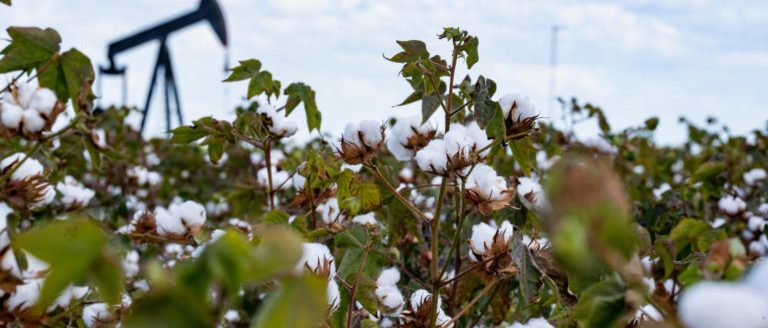Decades of collaborative research and scientific advancements have helped Texas cotton be the economic and industrial force it is today.
Texas cotton production represents a $2.4 billion contribution to the state’s gross domestic product. From 2019 to 2021, Texas cotton producers averaged 6.2 million bales of cotton on 4.6 million harvested acres, generating $2.1 billion in production value. The Texas cotton industry supports more than 40,000 jobs statewide and $1.55 billion in annual labor income.
Texas A&M AgriLife has a long-standing track record of teaming up with the cotton industry and federal agencies to solve some of the most pressing issues facing this important part of the Texas economy. A cotton-related project in the Texas A&M Department of Entomology illustrates this collaborative approach.
Scientists in the department received a matching grant of almost $150,000 from both the U.S. Department of Agriculture National Institute of Food and Agriculture, NIFA, and the Cotton Board, a commodity group that represents thousands of growers around Texas and the U.S.
The three-year project, Modifying Terpene Biosynthesis in Cotton to Enhance Insect Resistance Using a Transgene-free CRISPR/CAS9 Approach, has received $294,000 to research novel pest management tools for cotton production. If successful, these advances could ultimately provide positive cost-benefit results that ripple through the economy and environment.
Critical seed funding from Cotton Incorporated
The NIFA project initiated by Greg Sword, Ph.D., Texas A&M AgriLife Research scientist, Regents Professor and Charles R. Parencia Endowed Chair in the Department of Entomology, will focus on enhancing cotton plant resistance to insect pests.
The goal is to essentially silence genes in cotton that produce monoterpenes, chemicals that produce an odor pest insects home in on, Sword said. By removing odors that pests associate with a good place to feed and reproduce, scientists believe they can reduce infestations, which will in turn reduce pesticide use and improve profitability.
Sword is collaborating with Anjel Helms, Ph.D., a chemical ecologist and assistant professor in the Department of Entomology; Michael Thomson, Ph.D., AgriLife Research geneticist in the Department of Soil and Crop Sciences and the Crop Genome Editing Laboratory; and graduate student Mason Clark.
This research team is working on a project that was “seeded” by Cotton Incorporated, the industry’s not-for-profit company that supports research, marketing and promotion of cotton and cotton products.
The seed money allowed the AgriLife Research team to create a graduate position for Clark and produce preliminary data that laid the foundation for the NIFA grant proposal, Sword said. In addition, the terpene research is part of larger and parallel projects that began with direct support from Cotton Incorporated.
“Cotton Incorporated’s support has been absolutely critical to jumpstart the project from the beginning,” he said. “From a scientific standpoint, industry support and collaboration are vital to project success, whether that’s leveraging money for research or identifying, focusing on and solving a problem, which actually helps producers.”
Read more at AgriLife Today.

